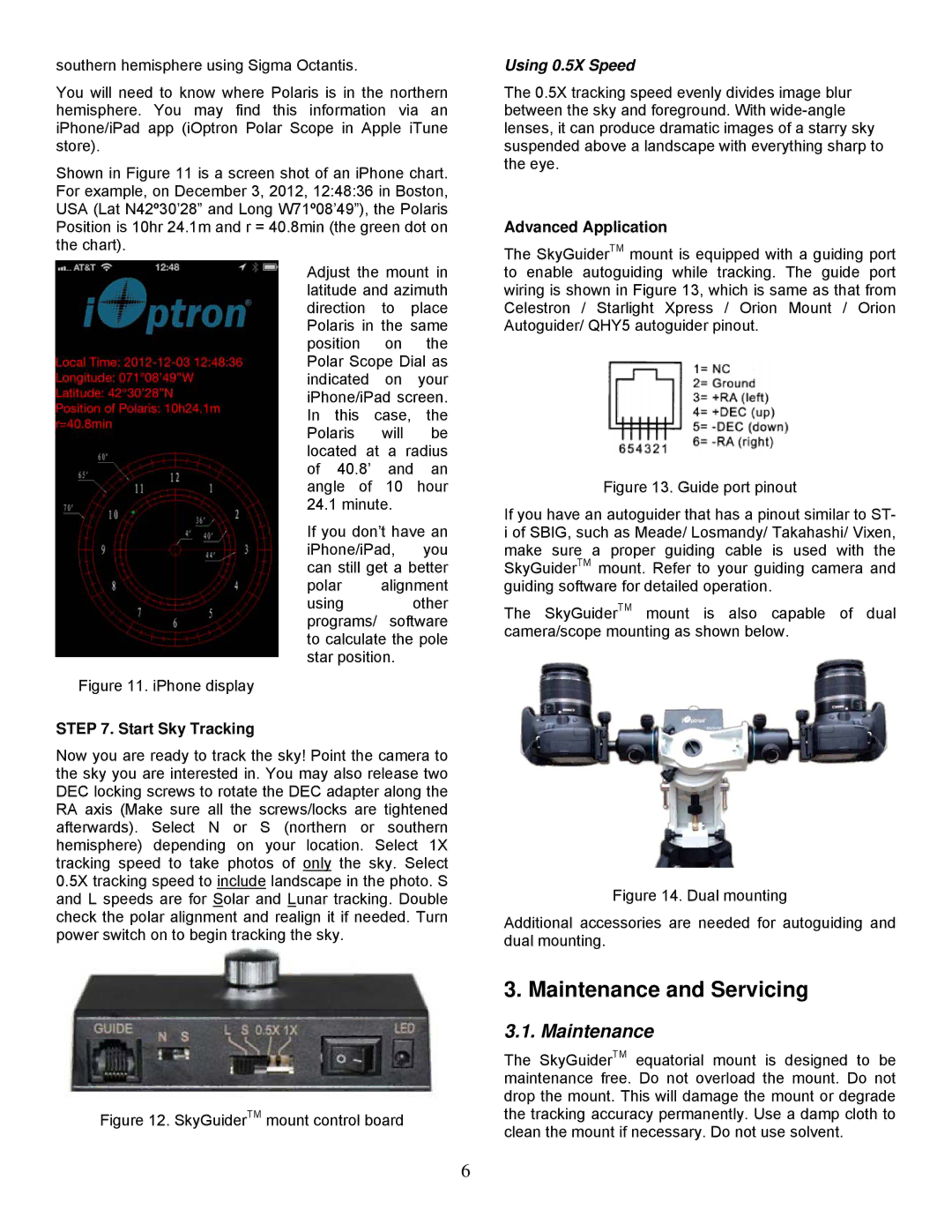#3500, #3520 specifications
iOptron, a prominent manufacturer in the field of astronomy, has consistently pushed the boundaries of telescope technology. Two standout products from their extensive lineup are the iOptron #3520 and #3500 telescope models. These telescopes are designed for both amateur astronomers and more serious enthusiasts, providing a mix of advanced features, reliability, and exceptional performance.The iOptron #3520 boasts a lightweight design, making it highly portable for users who wish to observe celestial bodies from various locations. This model features a 5-inch refractor optical system that delivers clear and crisp images, allowing users to explore planets, star clusters, and galaxies with ease. The inclusion of high-quality glass optics is essential for minimizing chromatic aberration, ensuring that images are sharp and vivid even at high magnifications.
One of the standout technologies utilized in the #3520 is the Intelligent GoTo Technology. This feature enables the telescope to automatically locate and track celestial objects using an intuitive handheld controller. The user-friendly interface simplifies the stargazing experience, allowing users to spend more time observing and less time searching for objects. Furthermore, the #3520 is compatible with various accessories, making it customizable according to different preferences and requirements.
The iOptron #3500 model, on the other hand, is designed with advanced tracking capabilities. Equipped with a high-torque motor drive system, the #3500 ensures smooth and precise tracking of objects across the night sky. This telescope is particularly suitable for astrophotography, as it provides a stable platform for capturing long-exposure images of deep-sky objects.
An important feature of the #3500 is its robust mounting system, which enhances stability during observations. The mount is easy to set up and can accommodate heavier optical tubes, making it versatile for various configurations. Additionally, its built-in leveling system ensures that the telescope is perfectly aligned, further enhancing image quality.
Both models prioritize ease of use and accessibility, demonstrating iOptron's commitment to fostering a love for astronomy among enthusiasts of all levels. With quick setup times, user-friendly controls, and exceptional optical performance, the iOptron #3520 and #3500 are indispensable tools for anyone who wishes to explore the wonders of the universe. Whether observing the rings of Saturn or capturing the beauty of a distant galaxy, these telescopes deliver unparalleled experiences that inspire curiosity and discovery.

